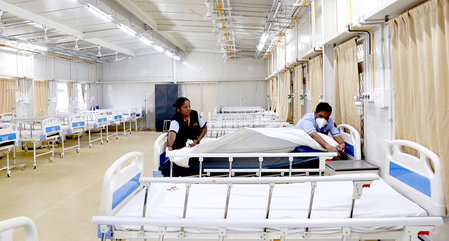Chennai, May 31 (IANS) In response to a recent spike in COVID-19 cases across several parts of India, including Tamil Nadu, the Directorate of Public Health and Preventive Medicine has instructed district, city, and municipal health officers to intensify disease surveillance and implement proactive measures for early detection, reporting, and response to cases of Influenza-Like Illness (ILI) and Severe Acute Respiratory Infections (SARI).
Citing fresh reports indicating a resurgence of COVID-19 cases nationwide during May, the directorate emphasised the need for heightened vigilance.
District Surveillance Units (DSUs) have been directed to monitor and report ILI and SARI cases daily from all healthcare facilities within their jurisdiction. Any unusual clustering of cases must be immediately flagged to the State Surveillance Unit to facilitate timely public health intervention.
Once clusters are identified, field-level teams, in coordination with Primary Health Centres (PHCs), must conduct close monitoring and initiate necessary follow-up actions. The directive underscores the importance of being prepared for a potential surge in cases.
Healthcare facilities have been instructed to verify the availability of essential medical supplies, including antiviral medications like Oseltamivir, and ensure that adequate diagnostic consumables are stocked. They are also required to assess the bed capacity in fever wards and prepare contingency plans to manage a possible increase in patient admissions.
In parallel, field staff are to be mobilised to promote public health awareness within communities. They are tasked with encouraging hand hygiene, mask usage in crowded settings, cough etiquette, and maintaining a safe distance from individuals showing respiratory symptoms. The public is being advised to seek prompt medical attention for symptoms such as fever, sore throat, cough, and body pain.
Special emphasis is being placed on the importance of seasonal influenza vaccination, especially for high-risk groups.
Additionally, the community is being urged to maintain the cleanliness of frequently touched surfaces, including mobile phones, door handles, and light switches.
All healthcare institutions have been instructed to ensure that ILI and SARI cases are reported promptly and consistently through the Integrated Health Information Platform (IHIP) portal without exception.
The renewed focus on surveillance and community engagement comes as part of the state’s precautionary efforts to contain the spread of respiratory illnesses amid evolving public health challenges.
–IANS
aal/dan

